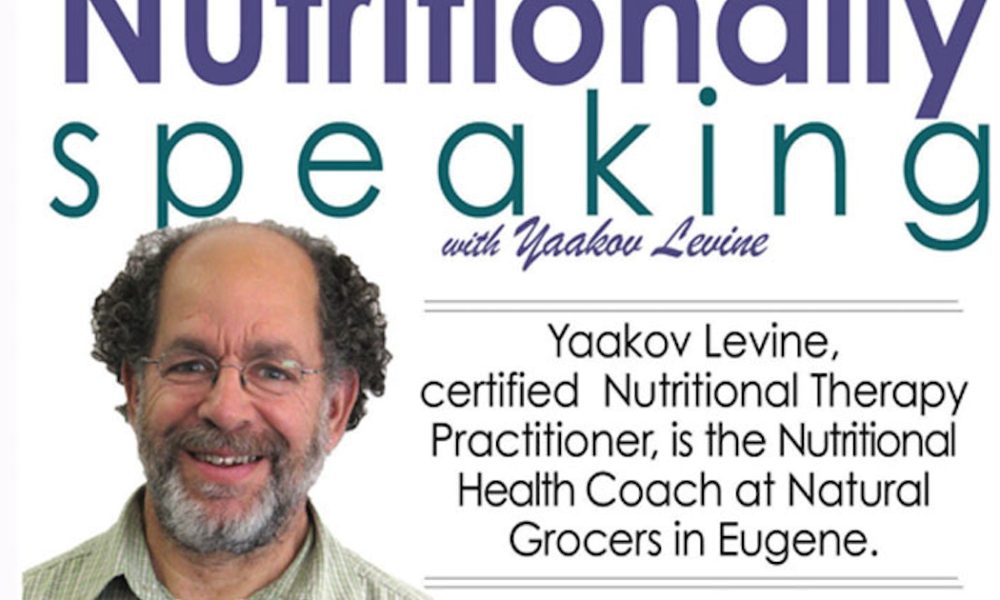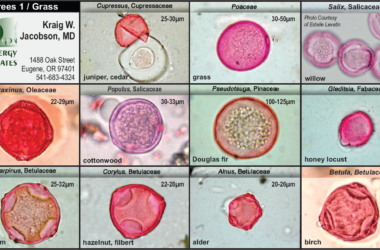
With our recent snow and cold weather it’s hard to imagine or anticipate, but many will soon be plagued with hay fever or pollen-related allergy symptoms. Sensitivity to pollens may be the most common malady we suffer from especially in the spring. You would think that our suffering from allergies has roots that go way back many generations. Actually, there are few medical records noting allergy symptoms until the latter half of the last century.
What happened to cause this change, you may be wondering? During those years we increased the amounts of processed foods especially the refined carbohydrates, such as pasta, white bread and sugary desserts like Jell-O in our diets. At this time we also reduced our intake of healthy fats and cholesterol, and many of us replaced our butter with hydrogenated margarine.
Author and physician Tom Cowan, MD describes the etiology or cause of allergies as often connected to the imbalances of our adrenal glands. As he explains, the adrenal cortex is a part of our adrenal glands that produces various hormones critical to our health. One of the hormones, cortisone mediates or prevents inflammation and without healthy adrenal function we suffer from inflammation.
Manifestations of inflammation include hay fever and asthma. Adrenal hormones also regulate blood sugar balance, mineral balance and sexual development. According to Cowan it is important to realize that these critical balancing hormones are synthesized from cholesterol, and the adrenal cortex requires the vitamin C complex to maintain proper function.
The adrenal cortex is very sensitive to imbalances of blood sugar levels. Consumption of refined carbohydrates is the cause of many cases of allergies we humans suffer, and this has also been proven in animal studies. A conventional treatment for allergies is cortisone, and according to Dr. Cowan, this weakens the adrenal glands and suppresses the immune system.
Dr. Cowan offers a nutritional protocol to get rid of hay fever allergy symptoms which is as follows: The first step in this therapy is to absolutely avoid all refined carbohydrates (pasta, bread, cookies, doughnuts) and most sweet foods such as maple syrup and fruit juices as long as symptoms are present.
He suggests eating a rhythmical diet including breakfast, lunch and dinner, with no snacks between meals. At each meal include about one-third animal protein foods, one-third properly prepared whole grains, and one-third vegetables with plenty of butter and good-quality sea salt such as Celtic salt.
Cowan suggests including zucchini and mineral-rich bone broth, as they both seem to lessen allergy symptoms.
During allergy season it is also important to eat foods high in vitamin C such as sprouts, sauerkraut and fresh berries, and to take a vitamin C supplement. I also suggest that every household have an eye cup handy. Our eyelashes are a great place for pollen to hang out and irritate our eyes with each blink. Put some warm, clean water in the eye cup, and rinse each eye many times each day as allergy symptoms persist.
This is just one of the hypotheses we understand can contribute to allergy symptoms. I will cover other causes and remedies for allergy season during my free presentation, ”It’s in the Air: Problems With Pollen?” on Wednesday, March 7 at 2 p.m. at Natural Grocers in Eugene.
For information about proper preparation of whole grains and bone broth, consult ”Nourishing Traditions,” by Sally Fallon. It is a great resource and should be available at our library.
At Natural Grocers in Eugene, where I am the store’s Nutritional Health Coach, we offer free classes that include plenty of information about healthy eating choices, and free one-on-one health coaching sessions (call 541-345-3300). Please “like” our Natural Grocers-Eugene Facebook page. Find our store’s schedule of free classes at: https://www.naturalgrocers.com/store-location/eugene/.







